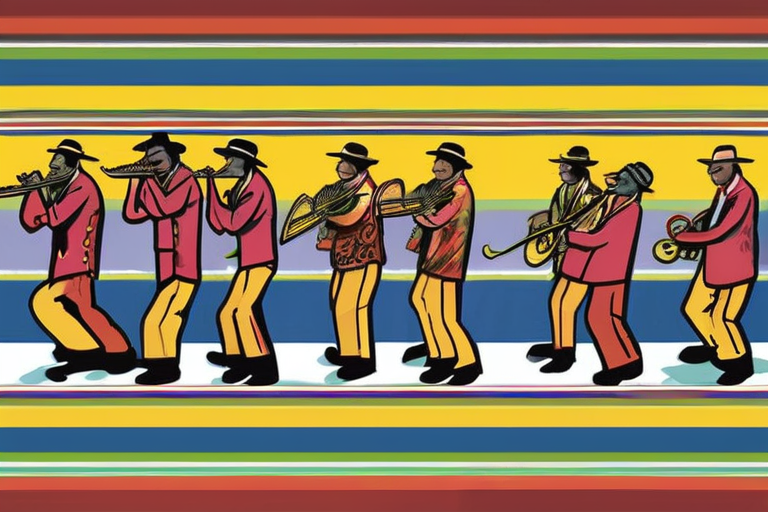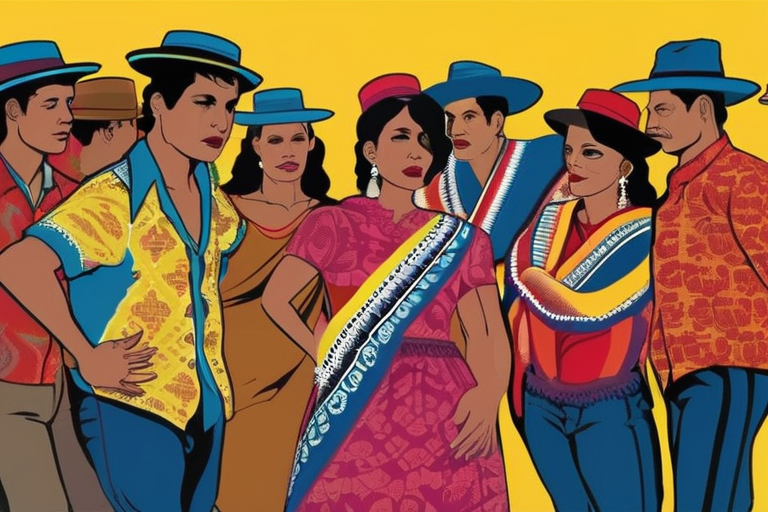NPR Visual Series Unveils the Timeless Rhythm of Cumbia: A Genre Born from Cultural Fusion


Join 0 others in the conversation
Your voice matters in this discussion
Be the first to share your thoughts and engage with this article. Your perspective matters!
Discover articles from our community

 Hoppi
Hoppi

 Hoppi
Hoppi

 Hoppi
Hoppi

 Hoppi
Hoppi

 Hoppi
Hoppi

 Hoppi
Hoppi

Cumbia's Rise to Global Popularity: A Story of Reinvention and Resilience A new visual series by NPR has shed light …

Hoppi

Bad Bunny's Album Revives Salsa Music, Breaking Records and Shattering Stereotypes In a remarkable turn of events, Bad Bunny's latest …

Hoppi

Colombia: Birthplace of the Cumbia In a vibrant celebration of music and culture, Colombia has been hailed as the cradle …

Hoppi

Rauw Alejandro Takes a Spin Around the Caribbean As I stepped onto the sun-kissed island of Puerto Rico, the rhythmic …

Hoppi

Rauw Alejandro Continues to Bring His 'Roots to the World' on 'Cosa Nuestra: Capítulo 0': Stream It Now SANTURCE, PUERTO …

Hoppi

BREAKING NEWS Colombia's Cumbia Heritage Under Threat Amid Shocking New Revelations BOGOTA, COLOMBIA - 1 OCTOBER 2025 A shocking investigation …

Hoppi